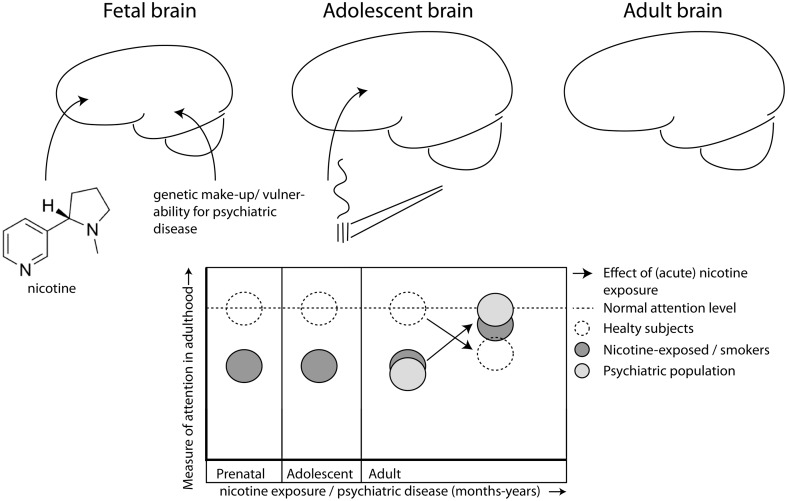Figure 1.
Nicotine exposure during prenatal and/or adolescent development has long-lasting detrimental effects on attention, even after prolonged abstinence. Exposure during both developmental periods (dark gray) has additive effects leading to worse performance than healthy controls (open, hatched line) during adulthood. Patients with certain psychiatric disorders (e.g., ADHD, schizophrenia; light gray) also suffer from decreased attention performance. Nicotine has beneficial effects on attention, but only in those individuals who have decreased levels of attention to begin with, like smokers (Lawrence et al., 2002) and patient populations (Lerman et al., 2001; Newhouse et al., 2004), but not in healthy controls (hatched line; Levin et al., 1997, 1998; Wignall and de Wit, 2011), albeit that nicotine is not always beneficial for smokers (Jacobsen et al., 2005, 2007).

